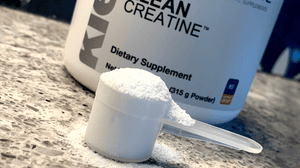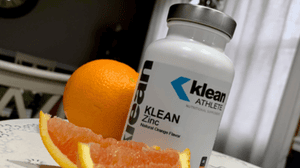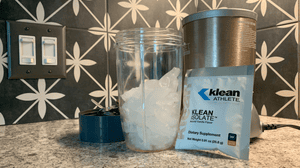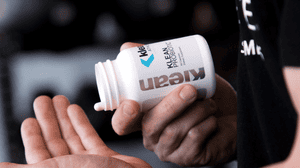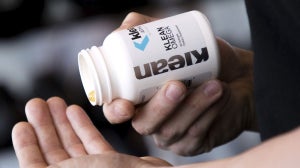
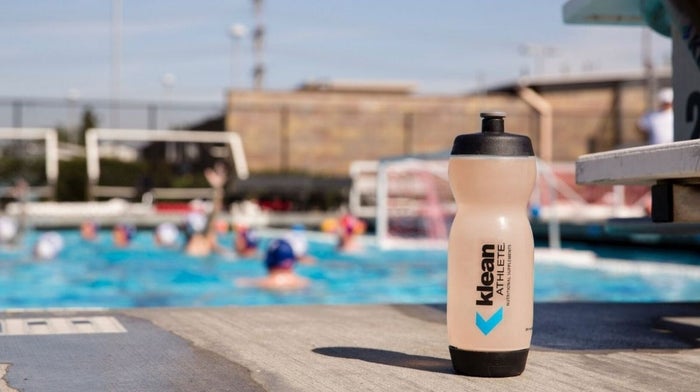
Every fitness fanatic knows that keeping their body hydrated with adequate fluid intake is crucial for supporting athletic performance and recovery. However, it can be difficult to tell if your current hydration strategy is working, as your body won’t alert you that it’s thirsty until you’re already dehydrated. What’s more, it can be hard to detect the early signs of fluid deficit.
Adequate hydration is just as essential as proper nutrition for enhancing your sporting performance. Here, we look at how you can tell if your current hydration strategy is working, and whether simply drinking plenty of water can ever be enough.
Do You Need to Reassess Your Hydration Strategy?
If you meet any of the following criteria, you may need to reassess your hydration strategy to make sure you’re supporting your body as best as possible:
You regularly train at a high intensity or for long durations that increase your sweat rate, resulting in your body losing extra fluid
You exercise indoors or in a warm or humid environment. These conditions can raise your temperature significantly, stopping sweat from evaporating from your body as easily
You exercise in a cold environment; cold air can promote the loss of respiratory fluid, and your sweat rate can be increased if you’re wearing extra layers of clothing
Your body weight is above average; heavier athletes can be more prone to dehydration
You train at a high altitude. When you reach 8,200ft, your urine output increases, and respiratory water loss is more common, due to changes in your breathing
How Much Fluid Do I Need?
In warmer climates and training conditions, athletes can lose between 0.5 and 2 liters of water per hour.
A good tip for estimating how much fluid you need to support your workout is to weigh yourself before and after training on three consecutive days, in a representative climate. For every pound you’ve lost, you’ll need to consume roughly 1 pint of extra fluids to keep yourself sufficiently hydrated.
Is Water Alone the Most Effective Hydrator?
Water is an essential nutrient and should be an integral part of everyone’s diet, but especially for athletes. Drinking water alone to keep your body hydrated will provide you with sufficient hydration for around an hour in a temperate climate, as long as you’re drinking it regularly throughout that hour.
However, if you’re sweating heavily on a regular basis as part of an intense training regime, water alone is unlikely to be enough.
There can be several disadvantages to drinking only water, including increasing your risk of hyponatremia (low blood-sodium levels). What’s more, water can sit in your stomach for longer than beverages containing sodium and carbohydrates, and it can affect your desire to drink later in your workout, leaving you dehydrated as a result. These reasons are why many athletes opt for a specially formulated hydration beverage.
What Makes the Perfect Hydrating Drink to Support a Workout?
The hydrating ability of a workout drink depends on the following variables:
Sodium - Including this mineral in a hydrating beverage can help to: replace sodium lost via sweat; sustain your thirst mechanism, encouraging you to drink more; mildly reduce your urine output, keeping the fluid you’re drinking in your bloodstream for longer
Potassium, magnesium and calcium - Large amounts of these are not necessary in a workout drink, but your body does lose them when sweating
Carbohydrates - Carbs are not just a source of energy; they also play a key role in supporting the absorption of fluid through your intestinal wall, helping it to reach the bloodstream faster
Taste - Finally, any hydrating beverage needs to taste good, because you’ll be drinking significant amounts of it!
Our Klean Hydration supplement contains a carefully formulated blend of each of these ingredients and is perfect for boosting your workout performance and post-workout recovery†.
Absorption and Tolerability: Formulation Principles You Won’t See on a Label
Optimal absorption of fluids occurs when a beverage’s osmotic concentration, or osmolarity, is similar to your body’s own fluids. Excessive sodium, potassium and sugars will drive this value higher, impeding fluid absorption and increasing the risk of digestive distress. A drink with a low osmolarity similar to body fluids (around 270-295 mOsm/l) is typically absorbed faster and is often better tolerated.
Sodium and potassium chlorides increase osmolarity more significantly than citrates. Sugars typically have a negative impact above 4%. However, certain complex carbohydrates have no effect on osmolarity. Cluster Dextrin® has a lower molecular weight than typical long-chain starch molecules and contributes to the unique carbohydrate composition and low osmolarity of Klean Hydration†.
Klean Hydration: What You Need to Know
Klean Hydration supplement provides 6% carbohydrates, 180mg sodium and 70mg potassium (as citrates) per 8 fl oz, along with chelated magnesium and calcium. This great-tasting beverage, now available as a powdered mix (tub or packets), is ideal for pre-workout hydration, as well as electrolyte and fluid replenishment during and after exercise†.
Klean Hydration also brings you the peace of mind that you expect from Klean Athlete, as every product undergoes rigorous testing by the NSF Certified for Sport® program to certify that sports supplements are safe and free from banned substances. Formulated based on well-established beverage formulation principles and scientific research, Klean Hydration is a reliable, versatile solution for any athlete or active individual to support optimal hydration for performance and recovery†.
Simply add a serving of this hydration supplement to water to hydrate your body before you work out and to help replenish your electrolyte and fluid levels during and after exercise†.
Explore the full range of Klean Athlete Supplements.
†These statements have not been evaluated by the Food and Drug Administration. These products are not intended to diagnose, treat, cure or prevent any disease.
The information contained herein is for informational purposes only and does not establish a doctor-patient relationship.


